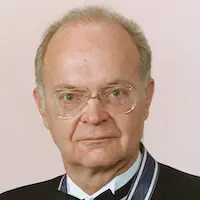Donald Knuth
Emeritus Fletcher Jones Professor of Computer Science, at Stanford University. Ph.D. - Caltech.
Recommended book categories
Professor Knuth has recommended books in the following areas:
Donald Ervin Knuthis an American computer scientist, mathematician, and professor emeritus at Stanford University. He is the 1974 recipient of the ACM Turing Award, informally considered the Nobel Prize of computer science.
He is the author of the multi-volume work The Art of Computer Programming. He contributed to the development of the rigorous analysis of the computational complexity of algorithms and systematized formal mathematical techniques for it. In the process he also popularized the asymptotic notation. In addition to fundamental contributions in several branches of theoretical computer science, Knuth is the creator of the TeX computer typesetting system, the related METAFONT font definition language and rendering system, and the Computer Modern family of typefaces.
As a writer and scholar, Knuth created the WEB and CWEB computer programming systems designed to encourage and facilitate literate programming, and designed the MIX/MMIX instruction set architectures. Knuth strongly opposes granting software patents, having expressed his opinion to the United States Patent and Trademark Office and European Patent Organisation.
In 1956, Knuth received a scholarship to the Case Institute of Technology (now part of Case Western Reserve University) in Cleveland, Ohio. He also joined Beta Nu Chapter of the Theta Chi fraternity. While studying physics at the Case Institute of Technology, Knuth was introduced to the IBM 650, one of the early mainframes. After reading the computer’s manual, Knuth decided to rewrite the assembly and compiler code for the machine used in his school, because he believed he could do it better.
In 1958, Knuth created a program to help his school’s basketball team win their games. He assigned “values” to players in order to gauge their probability of getting points, a novel approach that Newsweek and CBS Evening News later reported on.
Knuth was one of the founding editors of Case Institute’s Engineering and Science Review, which won a national award as best technical magazine in 1959. He then switched from physics to mathematics, and in 1960 he received his bachelor of science degree, simultaneously being given a master of science degree by a special award of the faculty who considered his work exceptionally outstanding.
In 1963, with mathematician Marshall Hall as his adviser, he earned a PhD in mathematics from the California Institute of Technology.
After receiving his PhD, Knuth joined Caltech’s faculty as an assistant professor.
He accepted a commission to write a book on computer programming language compilers. While working on this project, Knuth decided that he could not adequately treat the topic without first developing a fundamental theory of computer programming, which became The Art of Computer Programming. He originally planned to publish this as a single book. As Knuth developed his outline for the book, he concluded that he required six volumes, and then seven, to thoroughly cover the subject. He published the first volume in 1968.
Just before publishing the first volume of The Art of Computer Programming, Knuth left Caltech to accept employment with the Institute for Defense Analyses’ Communications Research Division, then situated on the Princeton University campus, which was performing mathematical research in cryptography to support the National Security Agency.
In 1967 Knuth attended Society for Industrial and Applied Mathematics conference and someone asked what he did. At the time computer science was partitioned into numerical analysis, artificial intelligence and programming languages. Based on his study and The Art of Computer Programming book, Knuth decided the next time someone asked he would say, “Analysis of algorithms.”
Knuth then left this position to join the Stanford University faculty in 1969, where he is now Fletcher Jones Professor of Computer Science, Emeritus.
Awards and Honors
-
First ACM Grace Murray Hopper Award, 1971
-
Turing Award, 1974
-
Lester R. Ford Award, 1975 and 1993
-
Josiah Willard Gibbs Lecturer, 1978
-
National Medal of Science, 1979
-
Distinguished Fellow of the British Computer Society (DFBCS), 1980
-
Franklin Medal, 1988
-
Awarded the one-of-a-kind academic title of Professor of The Art of Computer Programming, which has since been revised to Professor Emeritus of The Art of Computer Programming, 1990
-
John von Neumann Medal, 1995
-
Harvey Prize from the Technion, 1995
-
Kyoto Prize, 1996
-
Fellow of the Computer History Museum “for his fundamental early work in the history of computing algorithms, development of the TeX typesetting language, and for major contributions to mathematics and computer science.”, 1998
-
Asteroid 21656 Knuth, named in his honor in May 2001
-
Fellow (first class of Fellows) of the Society for Industrial and Applied Mathematics, 2009
-
Katayanagi Prize, 2010
-
BBVA Foundation Frontiers of Knowledge Award in the category of Information and Communication Technologies, 2010
-
Turing Lecture, 2011
-
Stanford University School of Engineering Hero Award, 2011
-
Fellow of the American Mathematical Society
-
Member of the Norwegian Academy of Science and Letters
